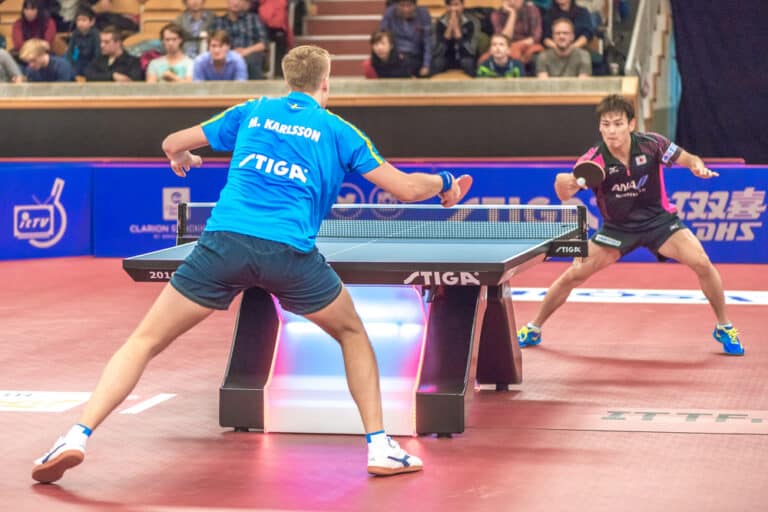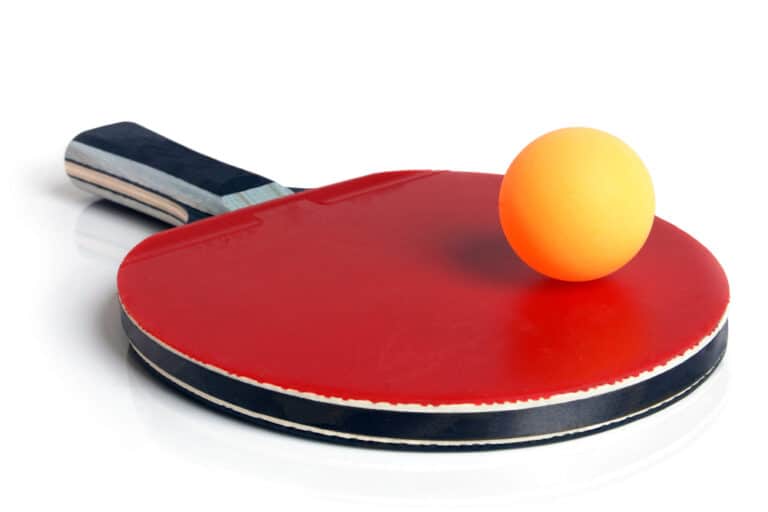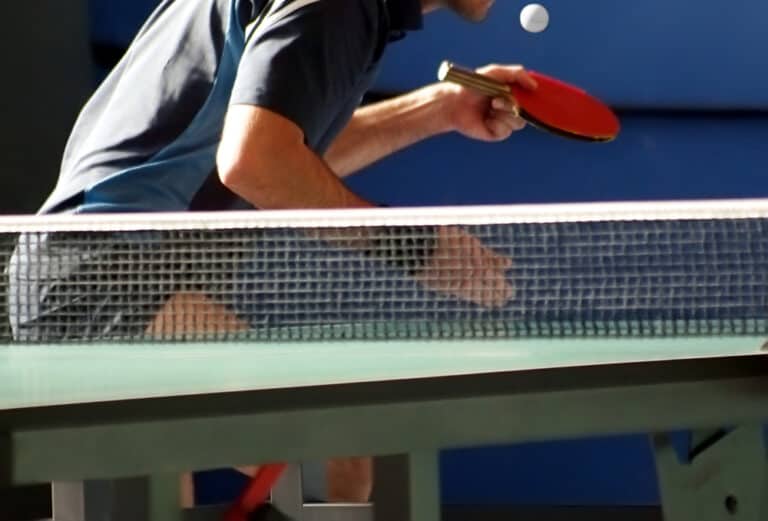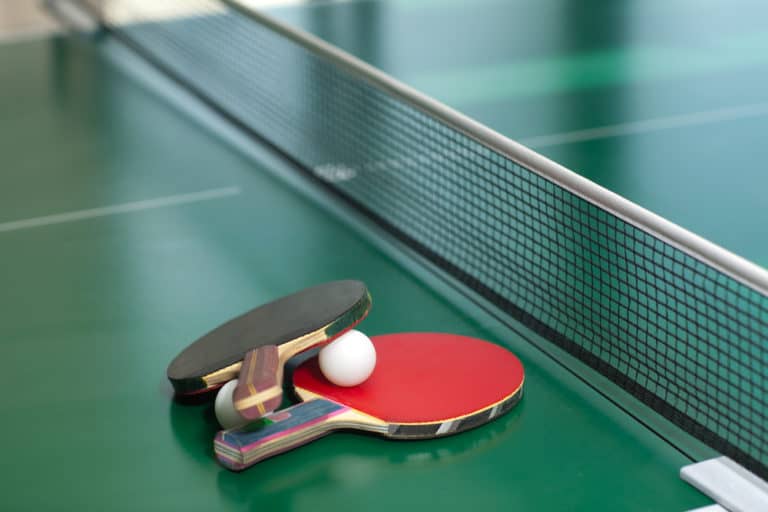Advantage Of A Forehand Serve In Table Tennis
Although the forehand serves are among the most basic types of serves, they are essential. Most coaches start by teaching the forehand serves to beginner players as the forehand is the most dominant position for a lot of players making the techniques and skills much easier to learn as they feel more natural.
The main advantage of the forehand serve in table tennis is power and velocity. Most power comes from the legs and not the body; therefore, the square stance from the forehand position allows us to generate a lot of power from the back leg to the front when rotating the hip to play a shot.
Although the main advantage is power, there are various benefits from serving with the forehand ranging from playing different kinds of spins to having the upper hand in ball placing. Different types of forehands serves yield their benefits; therefore, we can look at each of them individually.
What Are The Advantages Of Serving With The Forehand?
Beginner players will often start by learning the forehand serves as the forehand, is the most dominant position to practice the basics. Due to the forehand being comfortable and natural for most players, it’s the ideal serving position to practice overall control and ball placement.
With only a few months of practice, players will be able to control the direction of their serve as you are allowed to serve the ball anywhere on the table to gain an advantage. In addition, having more control over the forehand makes spinning techniques and skills much more manageable.
Spinning is a major component of table tennis, and the more effective players learn how to use their wrist to create the perfect motion with the paddle, the better their serve will be. It’s quite challenging knowing how to flow with the wrist and accurately hit the ideal side of the ball for a proper spinning result. Therefore, most players start with the forehand.
Finally, due to the forehand being more dominant, it’s also more powerful, resulting in a more aggressive serve. Serving with the forehand is an offensive position that puts a lot of pressure on the opponent.
Often players can create an aggressive serve with a lot of control, serving to the opponent’s weak side, or they can ‘deceive’ the player into thinking an aggressive shot will be played only to play a technical spinning serve. The forehand position lends itself to various options making it a favorable serve to gain an advantage during a game.
Moreover, due to the popularity and dominance of the forehand, there are various types of serves players can use that have their benefits and drawbacks, such as “The Forehand Pendulum” and “The Forehand Tomohawk.”
What Are The Advantages Of The Forehand Pendulum?
As previously mentioned, the forehand provides many opportunities to play different types of serves in various places on the table, making it a favorable position. The forehand Pendulum is one of the most popular forehand serves for precisely this reason.
You can play multiple variations with the forehand pendulum, all designed to “deceive” the opponent. Initially, it was a famous serve as you could obstruct the opponent’s view and hide the particular type of spin you were intending on playing; however, hiding your alterations to the ball is now illegal.
Although you can’t hide your alterations, there are so many to choose from, making it challenging for your opponent to spot which type of spin you are playing. For example, you can create different serves ranging from sidespin, side-backspin, side-topspin, pure backspin, and pure topspin, and even use no spin.
The variety of options keeps the opponent on their toes as they do not have a clear indication of how to return. The most popular type of spin, as it’s the easiest to play, is the right-to-left sidespin resulting in the ball breaking to the right. The direction in which the ball breaks is away from the receiver’s backhand, making it difficult for the opponent to return the serve with their backhand.
As the opponent will find the serve awkward to return, the server can immediately take a more offensive position knowing that the ball will either be played in the middle of the table or on the backhand. Players commonly use the serve to prepare for a forehand loop which puts a lot of pressure on the opponent.
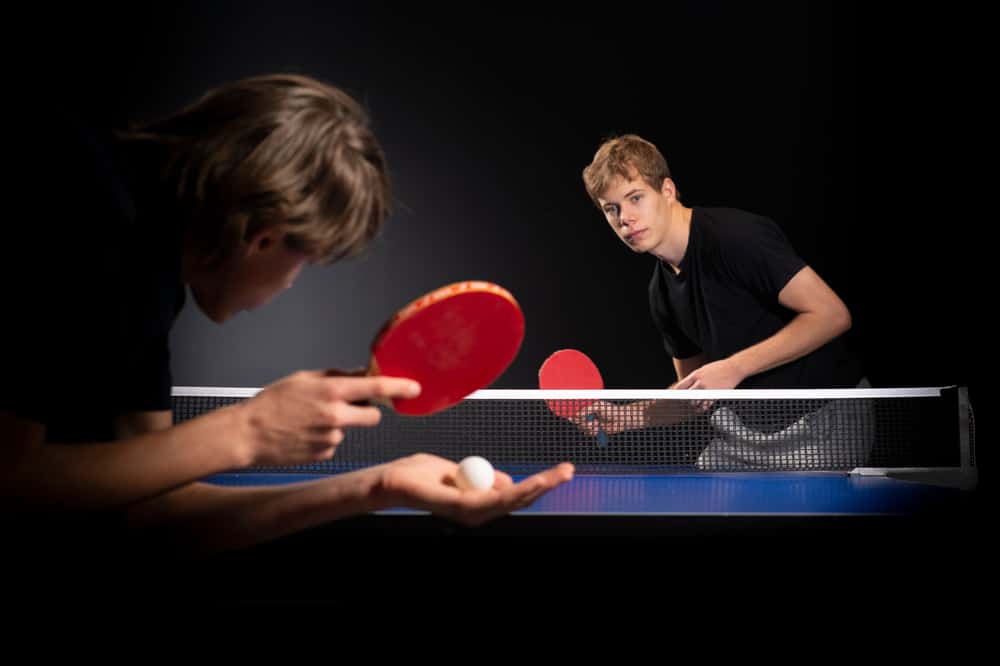
What Are the Disadvantages Of The Forehand Pendulum?
As the forehand pendulum is one of the most recognizable and popular serves, it’s also the most practiced serve. More advanced players can change their position and return the serve with a forehand loop, putting a lot of pressure on the server to receive the ball directly after the serve.
What Are The Advantages Of The Forehand Tomahawk?
Unlike the forehand pendulum, the goal of the Tomahawk serve is to win a point by the serve alone. The Tomahawk resembles the deceptiveness and riskiness of the ‘ghost serve’ as the goal is to trick the opponent into making a mistake rather than gaining an advantage during a game.
For example, the Tomahawk is directed to the receiver’s wide forehand but has a lot of spin resulting in the ball breaking away, which can be unexpected for the receiver. The short serve is the most effective version of this serve, as the heavy spin will make it difficult for the opponent to return close to the net.
Similar to the pendulum, you can get a lot more speed and power the higher you throw the ball, which will also result in more spin. On the other hand, a lower toss has more control, meaning you can make quick changes to deceive the opponent.
Either way, you can use the Tomahawk as an element of surprise to gain a point during a game, but it might not be the best go-to serve compared to others.
What Are the Disadvantages Of The Forehand Tomahawk?
Generally speaking, slow serves that bounce more than once on the table are considered weak serves as they are pretty easy to return if the opponent expects them. Although an ideal surprise serve, if the Tomahawk is served long, the receivers will be able to forehand loop it taking a much more offensive position which is not ideal for the server.
Conclusion
The forehand serve provides players with a lot more options and control as it’s a dominant position for most servers. Not only can servers alter between different types of spins and ball placements, but the position has an ideal stance creating a lot of power from the ground resulting in much more powerful shots for an offensive strategy.
